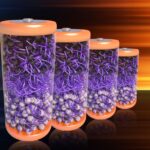 The European Commission is making waves with a hefty €8 million investment aimed at reshaping solar fuel technology. This funding, sourced from the Horizon Europe initiative, is backing two groundbreaking projects—SUN-PERFORM and Solar to Butanol (S2B). These projects are set to tackle carbon emissions head-on, especially in sectors like aviation and shipping, which have traditionally been tough nuts to crack when it comes to renewable energy.
The European Commission is making waves with a hefty €8 million investment aimed at reshaping solar fuel technology. This funding, sourced from the Horizon Europe initiative, is backing two groundbreaking projects—SUN-PERFORM and Solar to Butanol (S2B). These projects are set to tackle carbon emissions head-on, especially in sectors like aviation and shipping, which have traditionally been tough nuts to crack when it comes to renewable energy.
Both projects have secured funding under the Horizon Europe call HORIZON-CL5-2024-D3-01-04. This call supports cutting-edge biochemical and bio-inspired methods to improve how we harvest light and fix carbon. The big picture here is to speed up the conversion of solar energy into affordable fuel molecules, with a keen eye on scalability, sustainability, and economic sense. We should see results from these initiatives by 2028.
Leading the charge on SUN-PERFORM is Wageningen University in the Netherlands. They’re blending advanced nanocrystals with genetically engineered microalgae to supercharge solar fuel production. The goal? Boost solar-to-fuel conversion efficiency by a whopping four times. Dr. Sarah D’Adamo, the project coordinator, put it simply: “With SUN-PERFORM, our aim is to effectively solve challenges in hard-to-electrify sectors such as aviation and maritime shipping, where sustainable fuel alternatives are most urgently needed.”
Meanwhile, the Solar to Butanol project is taking a different route. They’re working on converting solar energy and CO₂ directly into butanol using genetically engineered microbes and high-tech materials. Their innovative approach involves solid-state photosynthetic biocatalysts crafted with 3D-printed hybrid films, incorporating photosynthetic cells within hydrogel-based materials. This setup is designed to enhance both light-to-fuel conversion and CO₂ fixation efficiency. Professor Yagut Allahverdiyeva-Rinne, the project’s coordinator, described it as “nature-inspired technology that is not only efficient but also cost-effective and scalable.”
Both projects highlight Europe’s dedication to a future free from fossil fuels through inventive clean energy solutions. SUN-PERFORM is focused on producing lipids that can be turned into biodiesel or sustainable aviation fuels, while S2B is all about directly synthesizing butanol as a drop-in fuel. Together, they mark a significant step towards the European Union’s climate-neutral future, driven by scientific collaboration and excellence.








